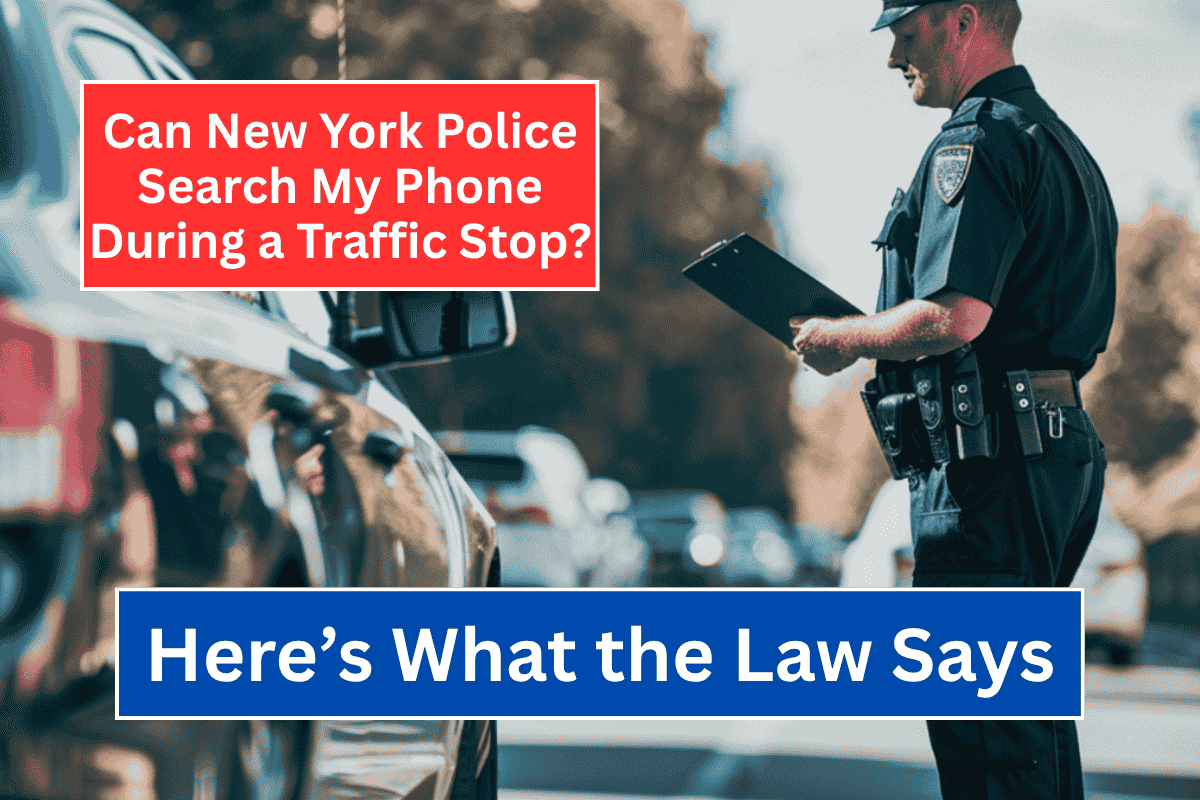When you’re pulled over by police in New York, it’s natural to feel nervous. But many people don’t fully understand their rights—especially when it comes to phone searches. Can officers legally go through your device during a routine traffic stop?
The answer depends on probable cause, reasonable suspicion, and your consent. Let’s break it down in simple language so you know exactly what your rights are.
What Is Probable Cause and Reasonable Suspicion?
Before we dive into phone searches, it’s important to understand two key legal terms:
Reasonable Suspicion: This is the minimum legal reason a police officer needs to pull you over. It’s more than just a hunch—it must be based on something the officer observed, like a traffic violation or erratic driving.
Probable Cause: This is a stronger legal standard. It means the officer has clear reason to believe a crime has been or is being committed. Probable cause is required for police to search your vehicle, arrest you, or search your phone.
Can Police Search Your Phone During a Traffic Stop?
No, police cannot search your phone during a traffic stop in New York without one of the following:
Your consent
A valid search warrant
Probable cause plus urgent circumstances (called “exigent circumstances”)
Your phone is protected under the Fourth Amendment of the U.S. Constitution, which guards against “unreasonable searches and seizures.” This means law enforcement needs to follow the rules before accessing your digital life.
If You’re Arrested, Can They Search Your Phone?
Even if you are arrested during the stop, police still need a warrant to go through your phone unless you agree to it. The Supreme Court ruled in Riley v. California (2014) that a mobile phone cannot be searched during an arrest without a warrant.
So, just being arrested isn’t enough for them to scroll through your texts, photos, or call logs.
When Can Police Search Your Phone Without a Warrant?
Here are the few situations where a warrant might not be needed:
You Give Consent
If you agree to let them search your phone, that’s all they need. But remember, you can politely say no, and they cannot punish you for refusing.
Exigent Circumstances
If there’s an emergency, like a threat to someone’s life or evidence that might be quickly deleted, police may argue they had no time to get a warrant. But this is rare, and courts often look at these cases very carefully.
Probable Cause + Seizure
If officers have strong reason to believe your phone has evidence of a crime, they may seize the phone but must still get a warrant to search its contents later.
Can Smelling Marijuana Lead to a Phone Search?
No. In New York, the smell of marijuana alone is not enough to justify a vehicle or phone search. The state’s cannabis laws have changed, and officers can’t use odor as the sole reason to search your belongings. However, if they see other clear signs of impairment or illegal activity, they may have the right to investigate further.
What Happens If Police Search Your Phone Illegally?
If your phone is searched without your consent, a warrant, or valid reason, any evidence found may be thrown out in court. This means prosecutors can’t use it against you, and it could lead to:
Charges being dropped
A lighter sentence
The case being dismissed altogether
You should always talk to a lawyer if your phone was searched without your permission. In many cases, challenging the search can turn the case in your favor.
Can Police Ask for Your Phone Password or Face ID?
No, you are not required to provide your passcode or unlock your phone. In New York (and across the U.S.), you have the right to remain silent. This includes refusing to unlock your device. Courts are still debating whether police can force you to use your fingerprint or face, but as of now, you can refuse both.
In New York, police cannot search your phone during a traffic stop unless they have your permission, a warrant, or a serious emergency reason. Knowing your rights helps protect your privacy.
Never feel pressured to unlock or hand over your device without clear legal justification. If you believe your phone was searched illegally, contact a criminal defense attorney immediately to understand your legal options and fight back.












